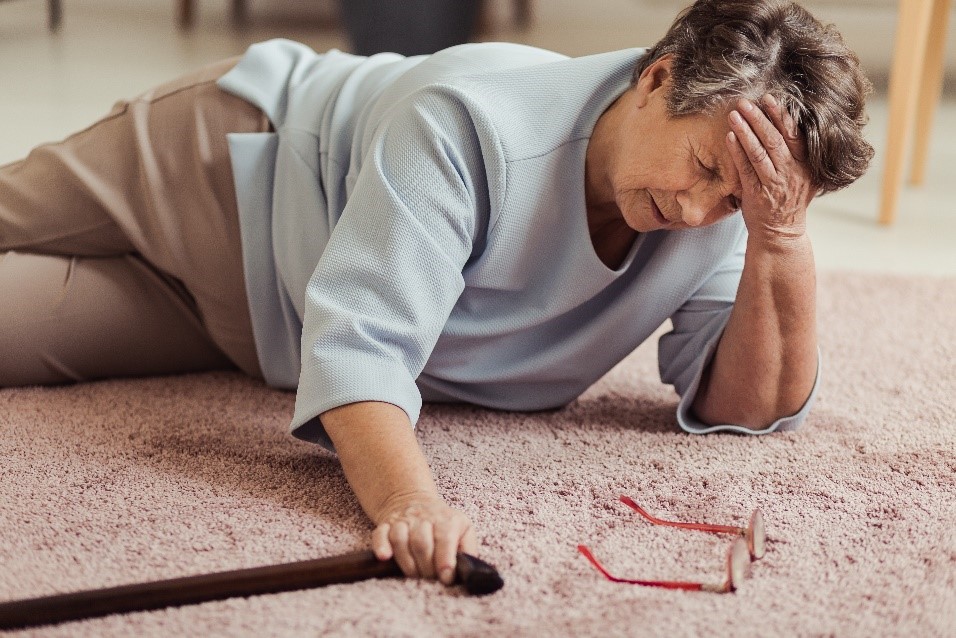


The natural ageing process often increases the risk of fall-related injuries in older adults. Therefore, it is not surprising that the number of hospitalisations caused by fall-related injuries is continually increasing as our population ages. A report conducted by the AIHW found an estimated 125,021 people aged 65 and over were hospitalised due to falls in 2016-17, attributing to 75% of all injury hospitalisations for older people.
Here’s what you need to know.
The report
The Australian Institute of Health and Welfare’s (AIHW) Trends in hospitalised injury due to falls in older people 2007-08 to 2016-17found the rates of fall-related injury in people aged 65 and over increased by 2% for women and 3% for men since 2007-08.
Professor James Harrison from the AIHW National Injury Surveillance Unit at Flinders University said, “falls are common among older people and can result in fractures, head injuries, other serious injuries and even death.”
The most common types of injuries relating to falls were those to the head, hip and thigh. Head injuries were more than double between 2007-08 and 2016-17 for men and women. These injuries accounted for one in every 8 days spent in hospital by a person aged 65 and over, with the average length of stay around 10 days.
Around 85% of injury cases were recorded as having occurred in either the home or in residential aged care. Therefore, it is important to understand what causes falls so you can prevent a fall yourself or help an older person in your family or community.
How to prevent falls
There are several factors that contribute to the risk of falling as you grow older. These include:
- Vision problems and loss of feeling
- Weakening muscles and stiffening joints
- New health problems
- Side effects of medication
- Sensory and balance problems
- Trip hazards
- Low calcium.
If a person is feeling unsteady or has a fall, the home doctor experts at House Call Doctor recommend seeing a GP, as it could be an indicator of an underlying health problem.
To avoid falls and injuries there are several steps you can take. Improving safety in and around your home is important in preventing falls. Make sure you have good lighting and remove clutter in walkways and corridors to avoid tripping. To improve safety outside your home, ensure any cracks in the pavement are repaired immediately and avoid using ladders.
It is also important to maximise your physical wellbeing to stay healthy. Talk to your GP about how to improve your diet, manage medication appropriately and ways to manage any chronic medical conditions. Have regular doctor, optometrist, and podiatrist appointments to ensure everything is as it should be. Keeping active will greatly improve your muscle strength and joint flexibility, not only preventing falls but improving your overall health.
Create a fall emergency plan
It is important to have an emergency plan in place, so you know what to do if you fall.
You should include in your plan:
- Information on how you would notify someone if you needed help (through a personal alarm or even arranging for a friend to call at a set time each day)
- An emergency contact
- Access for your emergency contact to be able to enter your property
- Things to do, for example practise getting up and down off the floor and placing your phone in a position that is in reach.
What to do if you fall?
Firstly, don’t panic. Stay still for a few minutes and try to calm down and call for help if you can. You can either call 000 or your local doctor for help.
If you can get up by yourself, slowly try and get to a stable piece of furniture and sit down. Examine any injuries. If you can’t get up by yourself, try to crawl or drag yourself to somewhere on carpet and find something to keep you warm. If you have a personal alarm use that, but if you don’t, try to alert someone in the house or a neighbour for help.
House Call Doctor is available in the after-hours should you need help.




